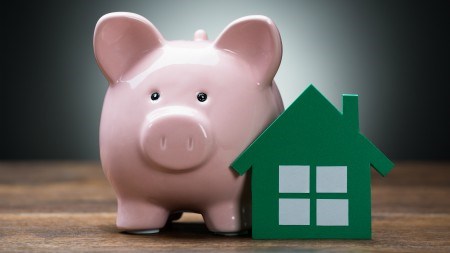First-time buyers are getting on the property ladder later than previous generations, but they are missing out on the benefits of buying young.
Many people only start thinking about home-ownership when they are ready to “settle down” or start a family, which is why first-time buyers these days are generally in their mid-30s, compared to those in the previous generation who were usually in their mid-20s.
“But it can really pay to get a start in the property market much sooner,” says Gerhard Kotzé, MD of the RealNet estate agency group.
“In fact, the earlier you begin the journey, the better. Young people who start a first job do of course have to budget carefully to cover all their bills, but if they are paying rent for accommodation, they should seriously consider the benefits of buying a home instead.”
The first of these, he says, is that buying a home is an investment in an appreciating asset. “This means that the value of the property will steadily increase and that owners who sell after a few years can confidently expect to show a positive return on their investment.
“According to the latest research by property data company Lightstone, the average period of ownership among first-time buyers is 12 years, and after that period, owners will usually also have paid off a substantial portion of their bond and generated ‘equity’ in their home that can either be added to their profit on resale or used to fund other investments.
“Building this equity by repaying your home loan each month is effectively the same as putting money into a savings account and getting paid interest at whatever your home loan interest rate is - which is usually a better rate than the banks pay on savings - and tax-free.”
Kotzé also notes that the longer buyers stay in their own homes, the more cost-effective ownership becomes when compared to renting. “Rents generally keep rising at around the rate of inflation every year, and after a few years of higher and higher rent you will not have anything to show for it. You just move out, leaving the property behind, and might even have to pay an additional amount to restore the property to its original state.
“Bond repayments, on the other hand, are influenced only by interest rates, which tend to change by much smaller percentages and less often. And even when interest rates do rise, part of every month’s bond repayment still goes towards reducing the outstanding capital portion of your home loan and building up your personal wealth.”
Property ownership also brings benefits such as security, stability, privacy, and the freedom to control your own environment, he says. “Renting doesn’t usually come with a lot of options for modifying or upgrading the property to better suit your changing needs. And if pleading with your landlord for approval doesn’t work, you may have no choice but to move home, and incur all the costs which that entails.
“Home-ownership means you can decide what improvements to make to your property, and reap all the benefit of the value these add in both personal and financial terms.”
In return for this freedom, however, home-ownership does imply more responsibilities than renting, says Kotzé. “Being your own ‘landlord’ means you are responsible for maintenance, repairs, insurance and levies as well as municipal rates and taxes, for example, and these monthly costs do have to be taken into account when you calculate how much you can afford to spend on buying your own home.
“Even this has benefits, though, because covering all these costs and paying all your bills on time while also paying off a home loan is a great way to build up a healthy credit record from a young age.”




